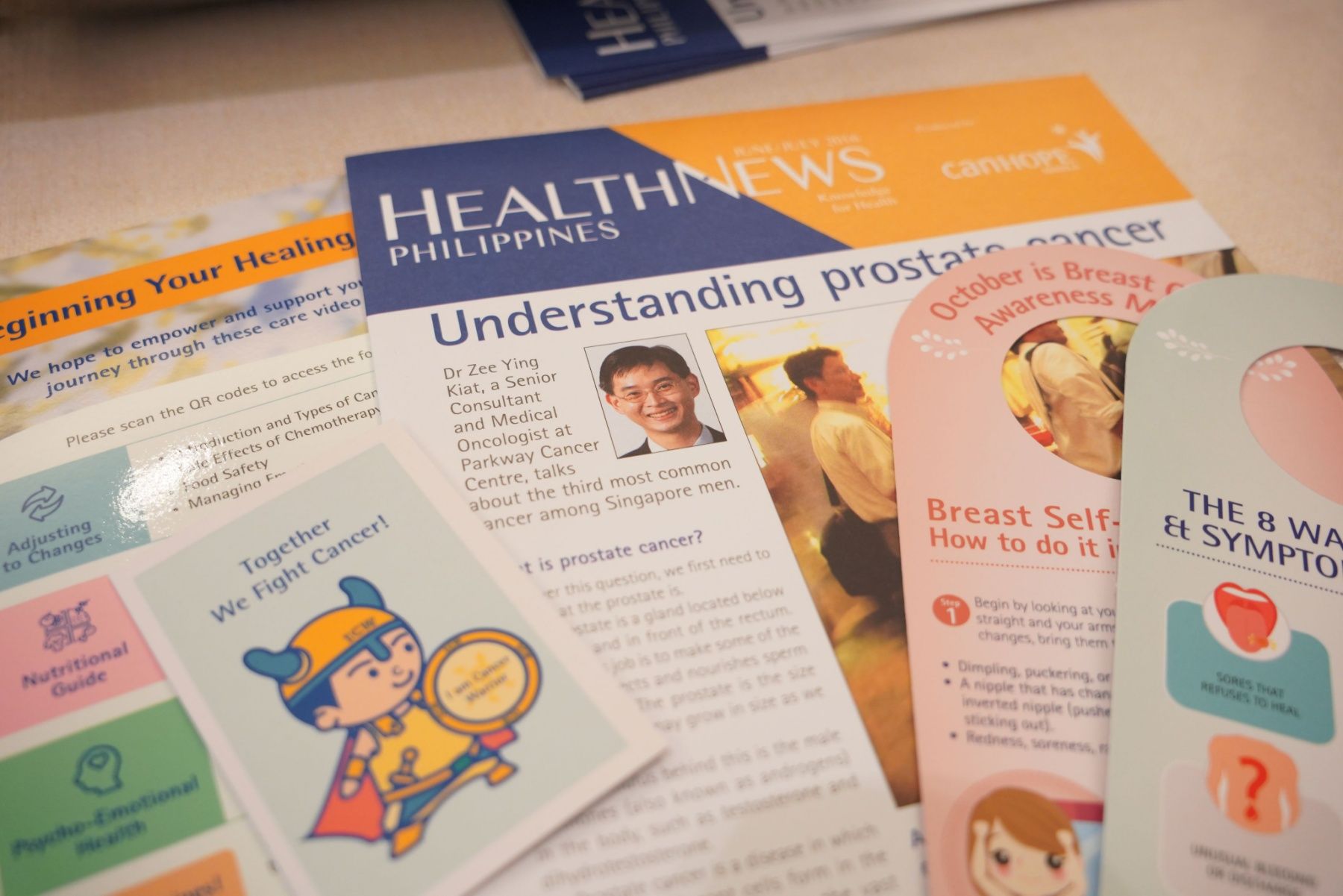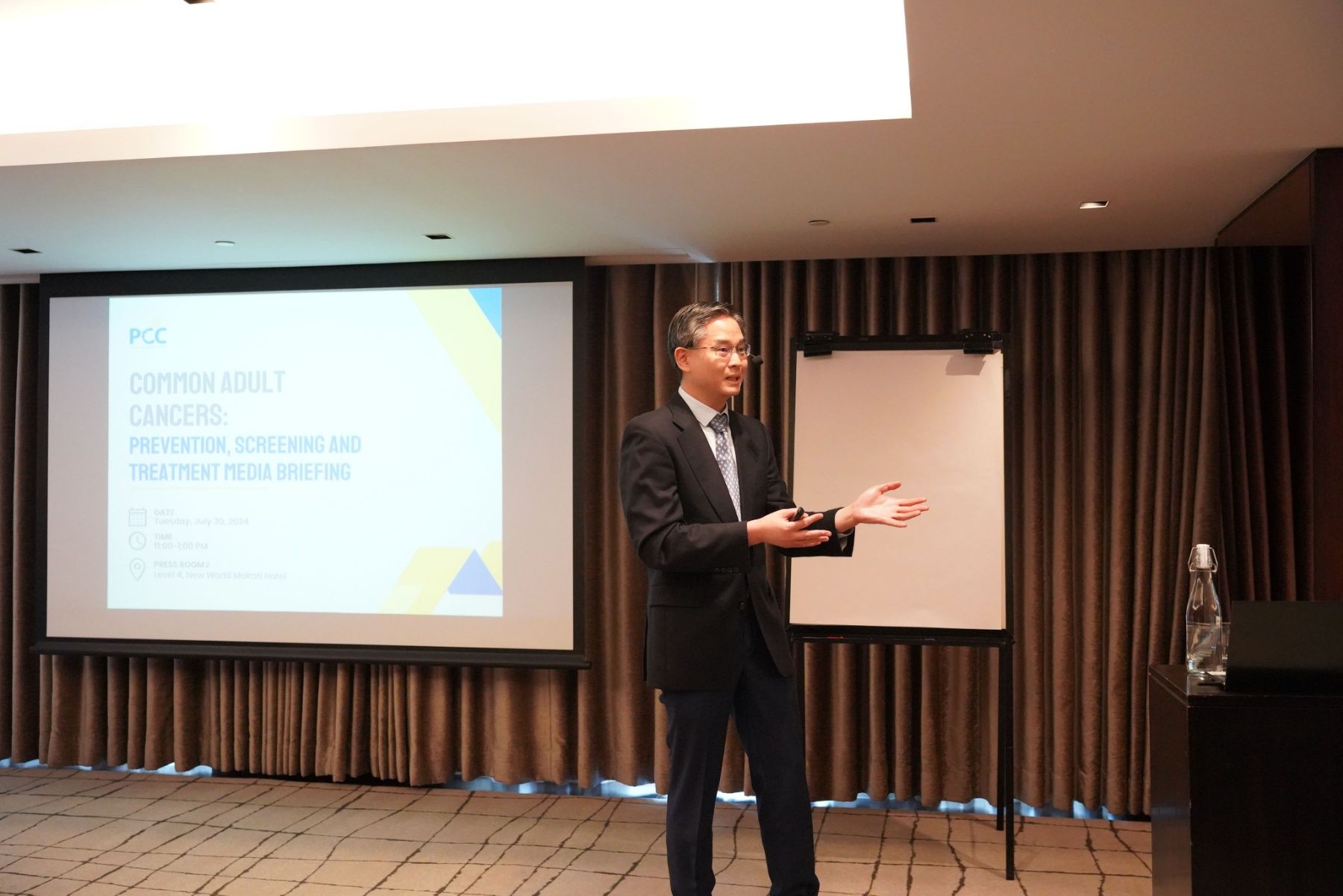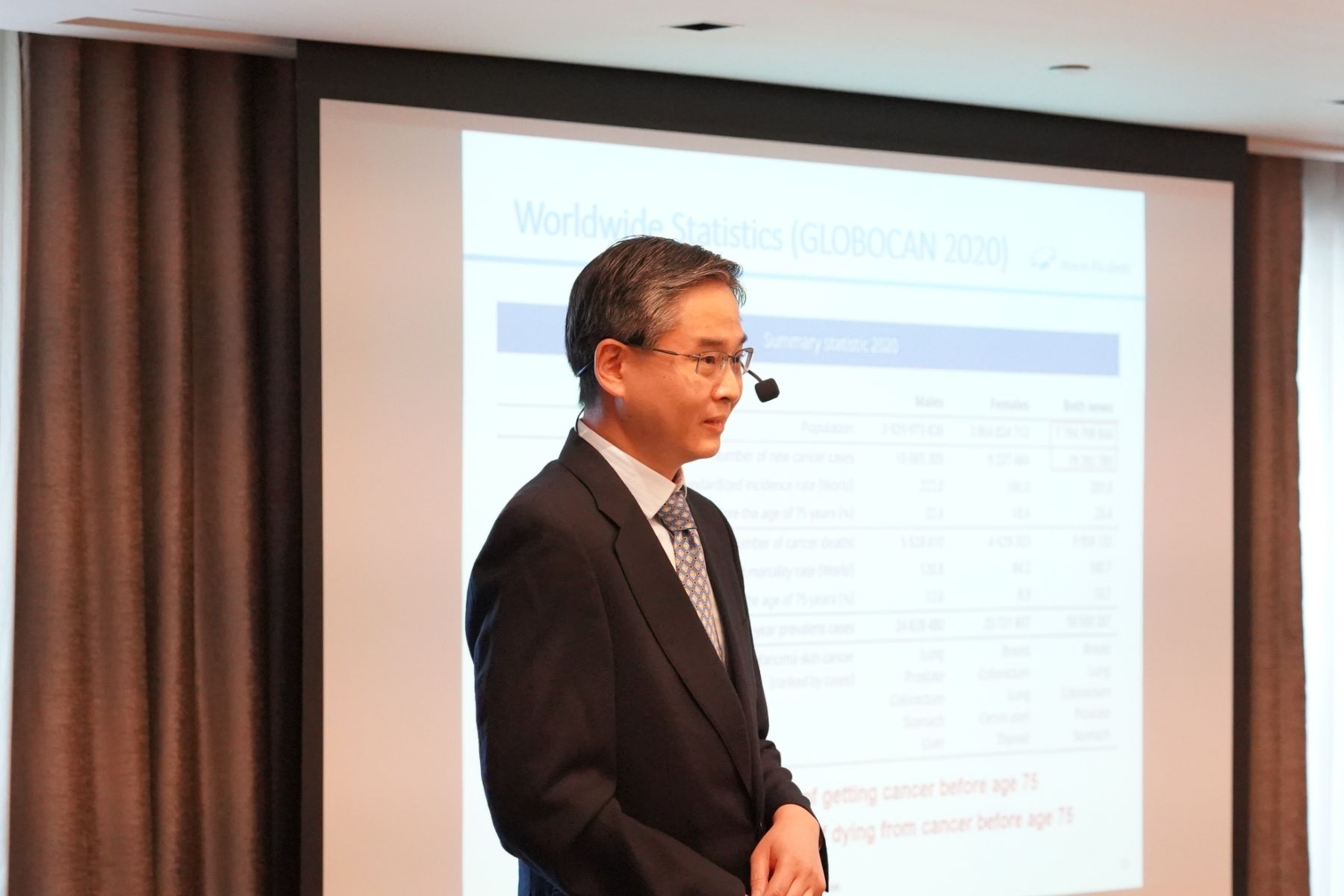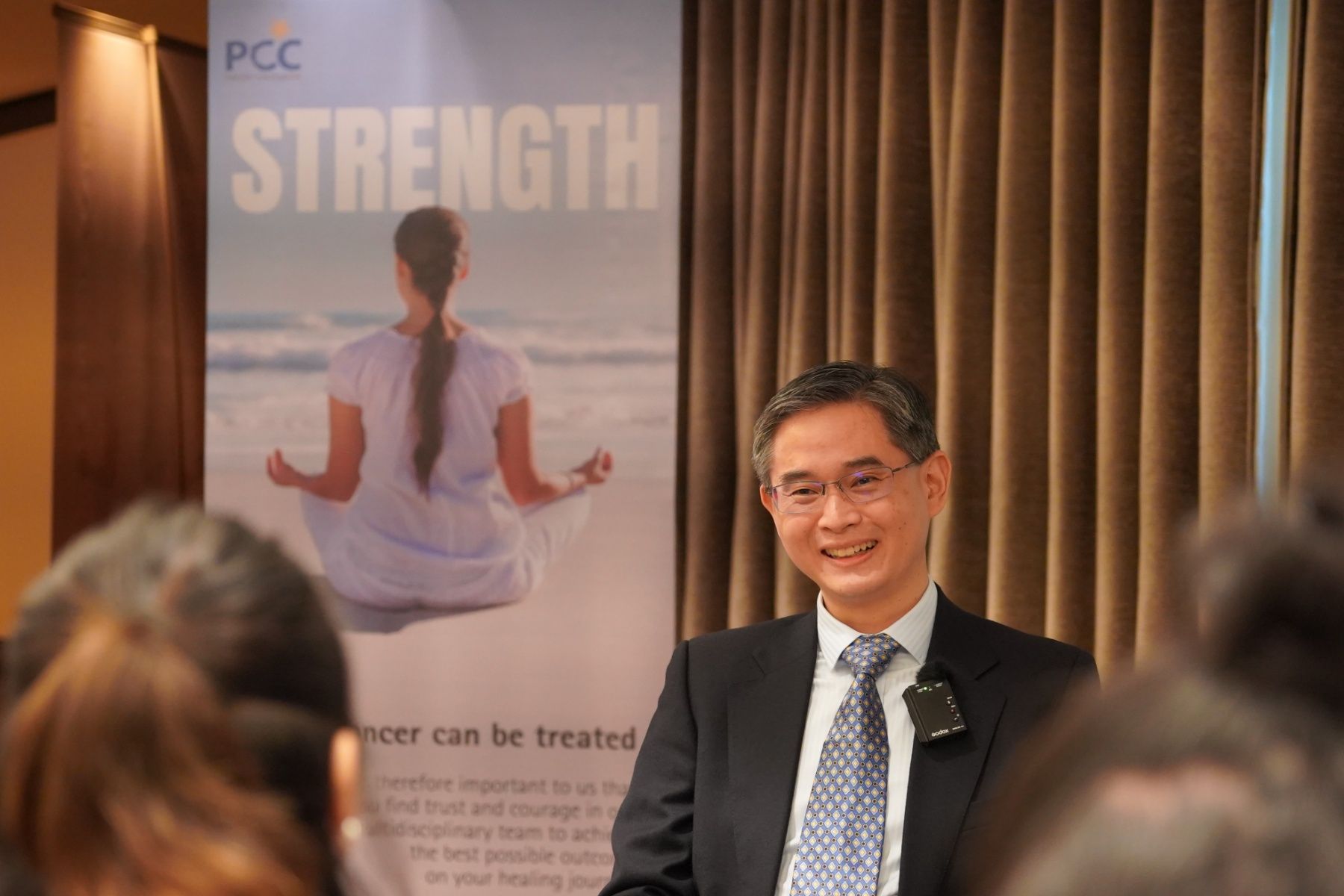How equipped are we today in battling cancer?
Insights from a Singapore medical oncologist Dr. Zee Ying Kiat of Parkway Cancer Center
By MB Lifestyle
The battle against cancer today is marked by significant advancements, ongoing challenges, and a collective global effort to improve cancer care—from prevention and diagnosis to post-cancer recovery. It has been found that cancer care does not start and end with treatment; rather, a 360-degree comprehensive approach creates more favorable outcomes.
Health professionals and institutions are placing greater emphasis on cancer prevention, early detection, and cutting-edge treatment methods. Part of these initiatives involve informing individuals and raising consciousness on how a favorable result can be attained through the combined actions of patients, their family members, and healthcare providers. This is what Parkway Cancer Center (PCC), a Singapore-based cancer care institution, has been instilling in the minds of people through their educational and awareness-raising efforts that have reached various parts of Asia, including the Philippines.

On July 30, 2024, PCC’s senior consultant and medical oncologist, Dr. Zee Ying Kiat, visited Manila to provide a media briefing on "Common Adult Cancers: Prevention, Screening, and Treatment."
His discussion provided insights into how cancer treatment today brings more hope to patients with the evolving cancer care landscape and advancements in technology. He gave a comprehensive talk about common adult cancers, how to prevent cancer, screening tests for different types of detectable cancers—including the frequency of screening and how they are conducted—and modern-day treatment methods.

Prevalence, prevention, and importance of early detection
For Dr. Zee, the rising incidence of cancer and the substantial number of deaths attributed to it stresses the imperative nature of the situation. He observed that 20 percent of individuals are at risk of developing cancer before turning 75, and 10 percent of patients are at risk of succumbing to cancer before hitting 75.
“It is estimated that cancer is likely to increase in numbers in the coming years, to the point that in the year 2050 we're expecting 35 million individuals to be diagnosed with cancer in that one year alone. And this represents an over 70 percent increase compared to current cancer statistics. So that, to me, will be a significant problem that we'll be facing in the near future,” he said in the interview with Manila Bulletin.
“The modern day diet and lifestyle are also important contributors. These include the increasing consumption of processed foods, fatty foods, less foods that are rich in fiber, together with perhaps a more sedentary lifestyle obesity and also lifestyle choices like smoking and vaping, these are all contributors to rising cancer rates.” he added.
Looking closer in the Philippine context, cancer is the second leading cause of cancer and that “189,000 new cases in the country are found and 12 percent have the risk of dying,” he articulated.
Dr. Zee highlighted that one-third of cancers can be avoided by making lifestyle changes, bringing good news to share. He emphasized the significance of steering clear of tobacco, sticking to a healthy diet that is low in saturated fat and high in fiber, avoiding too much sun exposure to ultraviolet radiation, and the need for regular screenings for certain cancers.
He particularly stressed how cancer screening can significantly improve outcomes. During his talk, Dr. Zee mentioned that routine screening mammography can reduce breast cancer mortality by 25-30 percent in women in their 50s, and annual low-dose screening CT scans can reduce lung cancer mortality, the most common cause of cancer death in the Philippines, by 20 percent in high-risk individuals. These are just a few examples of the proven benefits of early screening.

Comprehensive cancer treatment and holistic cancer care
Throughout his years of practice, Dr. Zee has deeply appreciated the importance of providing holistic, multidisciplinary cancer care to his patients which are found to create positive outcomes. He believes that care should be delivered with empathy and compassion, both for patients and their relatives. Dr. Zee often asks himself, “How would I want my own loved one to be cared for?” This mindset is particularly crucial as many patients from different parts of Southeast Asia come to PCC seeking cancer care.
This comprehensive method ensures that every aspect of a patient's well-being is addressed, leading to more effective and compassionate cancer care.
Advancement in treatment
Sharing his guiding principles for treatment, he emphasized the importance of evidence-based practices and a patient-centered approach. He believes that patients should be involved in all decision-making processes regarding their treatment methods.
He highlighted several advancements that have made cancer treatment more effective, including precision medicine, hormonal therapy, radiation therapy, targeted therapy, and surgery. He also touched on cancer immunotherapy.
“Precision medicine is doing tests to identify specific genetic mutations linked to the evolution, growth and spread of cancer, and then finding suitable targeted therapies,” Dr. Zee explained. “This approach tailors treatment to the individual’s cancer.”
Dr. Zee noted significant advancements in surgical techniques, such as keyhole methods and robotic surgery, which offer more accurate procedures, smaller incisions, shorter hospital stays, and less pain for patients. Radiation therapies have also improved, with treatments like proton therapy providing more effective results with fewer side effects. “We now have over 50 targeted therapies available for the treatment of patients with various cancers. And beyond that, we are now able to offer patients cancer immunotherapy to trigger one's own immune system with the task of dealing with cancer. So with all these advancements, patients' overall survival has improved.”
He also discussed the role of advanced medical imaging techniques and artificial intelligence (AI) in cancer care. AI helps select patients for clinical studies, assists radiologists in evaluating treatment scans, and predicts patient responses to treatment. “These areas will continue to improve and evolve over time,” he said. He shared his insights in the future advancements in cancer treatment including the increased adoption of precision medicine in tailoring treatments for individual patients.

Looking to the future, Dr. Zee anticipates more targeted therapies and increased affordability in cancer treatment. With the evolving approach to cancer care, there is hope for patients battling cancer and the doctors helping them. Dr. Zee believes these advancements are just the tip of the iceberg, with much more to come in the next decade.
The commitment to comprehensive support from institutions like Parkway Cancer Center marks just the beginning of a transformative journey in cancer treatment. For more information on how Parkway Cancer Center is leading the way in this field, visit their website at http://www.parkwaycancercentre.com/ph/about-us/who-we-are .